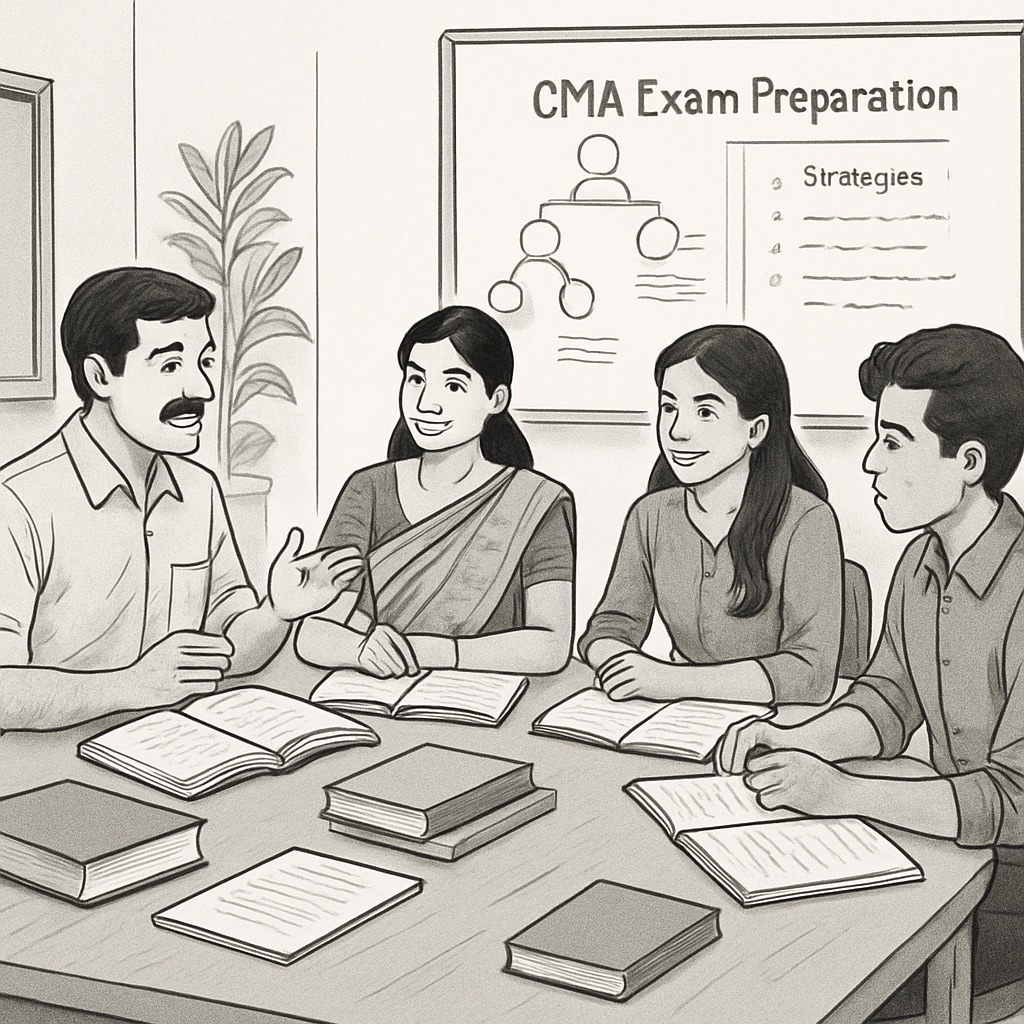For students in Kerala, the pursuit of the U.S. Certified Management Accountant (CMA) certification represents a leap towards global opportunities. The CMA credential, recognized internationally, paves the way for lucrative careers in management accounting and finance. However, this journey is not without its challenges. Aspiring professionals must navigate rigorous exams, adapt to international standards, and often balance their preparation alongside work or studies. Despite these hurdles, students in Kerala are increasingly embracing this path, finding it to be an investment in their future.
The Value of U.S. CMA Certification for Kerala Students
For students in Kerala, the U.S. CMA certification offers a unique opportunity to align with global standards in accounting and finance. The certification, administered by the Institute of Management Accountants (IMA), equips professionals with advanced financial management and strategic decision-making skills. These competencies are highly valued across industries worldwide, making CMA-certified individuals stand out in a competitive job market.
In Kerala, where the IT and financial services sectors are growing, the demand for globally recognized qualifications is on the rise. The U.S. CMA certification not only enhances career prospects but also enables professionals to gain a deeper understanding of management accounting principles, financial planning, and risk analysis. Moreover, the certification’s global recognition allows candidates to explore career opportunities beyond India, especially in the Middle East, Europe, and North America.

Challenges on the Path to CMA Certification
While the benefits of the U.S. CMA certification are evident, Kerala students face several challenges on their journey. For one, the financial investment required to enroll in the CMA program, purchase study materials, and pay exam fees can be significant. This often necessitates careful planning and budgeting, particularly for students from modest economic backgrounds.
In addition, the CMA exam syllabus is comprehensive, covering topics such as financial statement analysis, corporate governance, and managerial costing. Many students find it challenging to balance exam preparation with other responsibilities, such as academic coursework or professional commitments. Access to quality training programs and study resources can also vary, especially in smaller towns within Kerala.
Language barriers may further complicate the journey for some. While the CMA exams are conducted in English, not all students in Kerala have equal proficiency in the language, which can affect their confidence and performance. Overcoming these hurdles requires dedication, resilience, and a supportive learning environment.
The Role of Regional Learning Communities
To address the challenges associated with pursuing the CMA certification, the establishment of regional learning communities in Kerala could be transformative. These communities can serve as hubs for knowledge sharing, peer support, and mentorship, enabling students to prepare for the exams more effectively.
For example, local study groups can provide a collaborative environment where candidates exchange ideas, clarify doubts, and hold each other accountable for meeting study goals. Hosting workshops and seminars led by CMA-certified professionals can also inspire and guide aspiring candidates. Moreover, virtual learning platforms and online forums can connect students across Kerala, offering access to a broader network of resources and expertise.
Educational institutions and professional organizations in Kerala have a critical role to play in fostering these communities. By partnering with IMA and other stakeholders, they can offer subsidized training programs, scholarships, and access to study materials. Such initiatives can make the CMA certification more accessible and inclusive, particularly for students from economically disadvantaged backgrounds.

Looking Ahead: Bridging the Gap
As Kerala students continue to pursue the U.S. CMA certification, it is essential to address the systemic challenges they face. By building supportive learning communities, enhancing access to resources, and promoting awareness about the certification’s value, stakeholders can empower a new generation of globally competent professionals.
In conclusion, the journey of Kerala students towards CMA certification is not just about individual achievement; it reflects a broader aspiration to bridge the gap between local talent and global opportunities. With the right support systems in place, this educational exploration can lead to transformative outcomes for students, their families, and the broader community.
Readability guidance: The article balances short paragraphs and lists to enhance readability. It uses transition words to ensure a smooth flow of ideas and keeps the language accessible while maintaining professional depth. Images are included to provide visual engagement and align with the content’s key themes.


